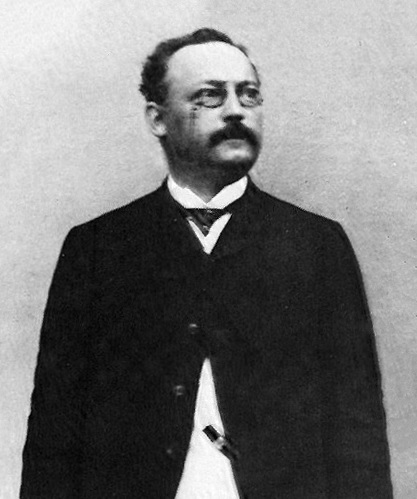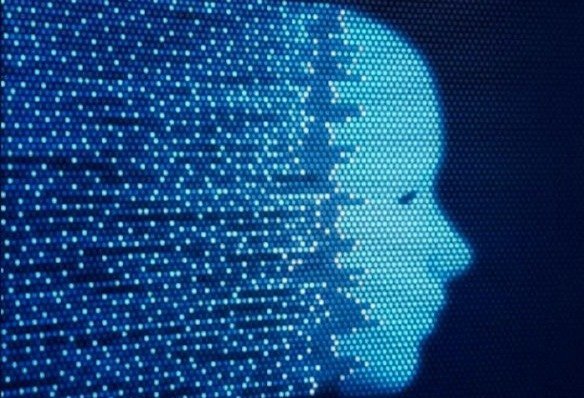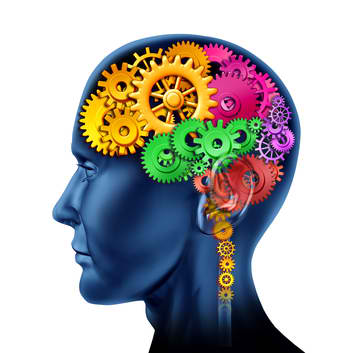Can a lesser intelligence create a greater one? Of course it can!
Inevitably, there must be people who believe it is impossible for us to create something that is "superior" to us in terms of intelligence, since typically the creator is the smartest one.

However, I want to share with you why I think it is not only possible to create a greater intelligence from a lesser one, but we have already done it and we have many examples. I will explain this more deeply in the following paragraphs.
Let’s start by clarifying what is “intelligence”
The ability to learn or understand or to deal with new situations | Source
Mental quality that consists of the abilities to learn from experience, adapt to new situations, understand and handle abstract concepts, and use knowledge to manipulate one’s environment. | Source
In other words, we can say intelligence consists on gaining knowledge and apply it in a practical way.
What do I mean with a greater intelligence?
The universal evolution dictates something very clear: only the patterns (beings) that manage to adapt in a balanced way to its environment, will survive.
That's all, no more than that, and by applying that point of view, a cockroach is as well adapted to its environment as we are to ours, so using this perspective it is wrong to say that we are superior to a cockroach.
What we can say, is that we possess an intellect of a higher level than that of a cockroach, simply because we can manipulate symbols, get excited when we hear a song that we like, and develop science and technology to improve our capabilities and our prosperity, in other words, we aren’t scavengers as cockroaches are. Therefore, we certainly have a greater intelligence than them.
Having said that...
Is it possible for a human being to create another being with a far greater intelligence?
Of course it’s possible!

The trick is to understand that it is not necessary to understand every little detail that give us intelligence in order to be able to provide intelligence to another being. That is, it is not necessary to know exactly what group of neurons do exactly what thing, but the important thing is to understand is the mechanism that causes intelligence to arise. And we know that mechanism, and it's called Evolution, and it's perhaps the simplest mechanism of the whole universe and our existence, and we have replicated it in thousands of computer software that implement patterns called "genetic algorithms".
The genetic algorithm is a method for solving both constrained and unconstrained optimization problems that is based on natural selection, the process that drives biological evolution. The genetic algorithm repeatedly modifies a population of individual solutions. At each step, the genetic algorithm selects individuals at random from the current population to be parents and uses them to produce the children for the next generation. Over successive generations, the population "evolves" toward an optimal solution. | Source

But if you want an excellent example that it is possible to create a greater intelligence from a lesser one, without it knowing the details of how it is generated, I will simply mention someone you certainly do not know: Albert Einstein's father.
This man did not know either neuroscience nor artificial intelligence, much less the things that his son Einstein would later discover in his life, but the only thing he had to know how to do was to love his wife and create a child. As simple as it sounds...
That is, Einstein's father did not have to sit down to calculate and do difficult equations about how the brain works to create his son. He simply used an evolutionary mechanism (DNA transfer by semen), and nature did the rest.
Another example of this is Neural Networks:
A neural network is a system of hardware and/or software patterned after the operation of neurons in the human brain. | Source
Artificial intelligence technique that mimics the operation of the human brain (nerves and neurons), and comprises of densely interconnected computer processors working simultaneously (in parallel). | Source
These "networks" of synthetic neurons have been used for about half a century, and what they do in simple terms is modeling or simulating the generic interconnections of biological neurons, but in a synthetic environment.

Scientists design these networks, train them, and then "release them to the world" so they can start to work. An interesting example is the camera systems used in many of the Las Vegas casinos. These cameras are tied to an AI software that detects patterns of human faces, to recognize scammers who have been banned from entering casinos.
The amazing thing is that these softwares do a much better job than humans in recognizing faces, and yet not one of the scientists who created these neural networks knows for sure all the details of the neural interconnections of hardware and / or software that make up those systems. The only thing the scientists did was to understand that from a simple structure (millions or billions of small neurons) it is possible for a more complex behavior to naturally arose, and they coded that knowledge into a system, which was later trained to recognize faces, and this system ended up being much better at recognizing faces than their own creators.
And the same will happen sooner or later with other areas of our brains such as the ones responsible for our creativity, emotions, feelings, reasoning.
Conclusion


We can conclude by saying it is possible for a lesser intelligence to create an intelligence greater than itself, because everything this requires is to understand the simple patterns from which more complex patterns emerge by themselves, even if we don’t necessarily understand how they emerge. In the end, intelligence and life itself is about patterns, the better we are at recognizing them, the better results we will get.
And that is a good argument supporting the hypothesis that given the exponential growth of science and technology, we are already taking our first steps to create synthetic beings that will be incredibly more advanced than us at an intellectual, emotional and physical level. This doesn’t mean we are going to be replaced by our creations, I believe we will simply join them in their synthetic ways, and start a new era for humanity. An era of complete digitalization of our existence.
How do you think our future will be? Does this subject excite you or frighten you? Perhaps in the future we will need antivirus in order to avoid hackers from controlling our thoughts or actions?
References
Merriam Webster
Britannica
Mathworks
Searchnetworking
Businessdictionary
Image Sources
1 , 2 , 3 , 4 , 5

Wealth is about much more than just money
Importance of resilience to overcome traumas from the past
Are humans still evolving? Yes we are!
“Today’s lesson”: About Gravity, Acceleration and their effect on Time
Why forgiveness is important if we want to thrive?

I think one area that should be addressed is do we really want to create a system or organism that is far more intelligent and advanced than we are. You can speculate that we would live harmoniously with our superior creation, but maybe that wouldn't be the case. Maybe we would be enslaved by it, or at the least relegated to live as secondary beings, perhaps even caged to keep our creations safe from our sometimes volatile, aggressive and destructive behaviors. It seems as if such an advanced being would be too evolved to do such a thing, but really how could we understand the thought process of such an advanced organism?
We will probably don’t understand it at the beginning. But I do think eventually machines and humans will be very similar. Changing our biological bodies for synthetic ones is the next big step in my opinion.
If we ever reach that evolutionary state, what comes next is hard to say.
So, you're thinking of something along the lines of The Singularity? I suppose an evolution such as that wouldn't necessarily be as concerning since it would effectively be upgrades to humans, not a completely separate entity. You're right though that whatever comes beyond that is very hard to say.
Exactly that! It would be our next step.
I have been interested in AI for quite a while and after reading “Artificial Life” by Steven Levy, I started thinking that true artificial intelligence couldn’t be achieved without using some sort of genetic algorithms. I was so taken with the idea I programmed a version of Conway’s “Game of Life” in Macromedia Director. (I'm old!)
After reading a lot about evolution I am now of the opinion that a true sentient being will not be created without the introduction of some parasitic forces. It’s life competing with itself that created a kind of arms race producing better and better organisms. I wrote about it here.
When AI programmers figure this out we may be in for some real trouble! Whoops, I just let the cat out of the bag.
You did a really great job with this post. Thanks!
Even Einstein was not good in his study at school but he became one of the genius in his later life.
That’s because most of the academic system has been broken for several decades.
Great example with the face-detecting AIs, for me that really supported your point! I think that humans strive for perfection, but technology is more suited for it. Therefore, a lesser intelligence can definitely create a greater intelligence, the implications of which are varied and we've been exploring in many forms of entertainment. I might sign up for that brain antivirus you mentioned, if things gets too close to iRobot!
The implications can be positive and/or negative as with any new groundbreaking technology. In the end, I believe the positive implications will far outweigh the negative ones, as it is usually the case with technology
For the last fifty years, Artificial Intelligence and Fusion, have only been ten years away.
The time will eventually come, in the 90 a lot of people thought that was the decade of virtual reality, when actually the decades of virtual reality end up being the 2010s.
naw..
in the 2020's we'll have 2020 virtual vision.
I love the way you formatted the text. It's really beautiful, the images are placed very correctly and the topic is interesting itself. Now, I want to say that my personal opinion is that its all about the TIME. When Einstain's father created him he was obviously more smart than Einstein since he found a way to create him.Time passes and things change, not in a way that Einstein's father became stupid or something. What I mean is that Einstein became smarter and smarter with time and that amount of intelligence became much more than his father's. Don't forget that his parents were the one who taught him how to walk, talk and think ( in a way ) .
Machines, Robots shouldn't be compared to people.The person is the one who created the Robot. We created robots, we create people. Robots can create Robots but they can't create humans.We can make them more superior than us thanks to the power of technology. They can be faster , more powerful than us but that's all thanks to us, they can't learn themselves.
That’s an interesting way of putting it and you are right. At the moment of creation the creator is indeed smarter.
Keep posting about such topics.I'm really interested since technology is one passion of mine = )
I have always had a problem with the phrase artificial intelligence being used to describe the end goal of this feild of work.
Artificial while having a true meaning of
More commonly carries with it the weight of its synonyms fake, false, sham, pretend, and simulated.
We have had simulated intelligence for decades hell video games have ai bots with convincing mechanics.
The real end goal would be better named actual intelligence or at worst non-biological intelligence.
Non-biological intelligence sounds good too. Although the term artificial intelligence is the most popular one obviously.
It is also possible to create a machine that is not smarter than man in all things, but if it is in its specific work, that is basically what has been happening in recent decades.
Of course pal, that has been happening several decades. The intriguing part starts when those creations are better than us at everything.
nope..
can a machine wiggle it's ears?
do machines EVEN have ears?
would a machine ever think of wiggling them if it had them??
can it roll up it's tounge and make a tube?
(same argument as with the ears)
of course not.
machines can't think.
Roll up its tongue lol.
I have met plenty of people that can't do that and many that I would never think of accusing of thinking.